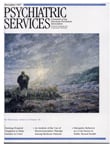Tailoring the chart
In Reply: Because cases of outright fraud are relatively rare and obviously wrong, Dr. Shih and I focused most of our attention on cases in which psychiatrists tailor charts for the benefit of their patients. I agree with Dr. Ginsberg that even the seemingly good reasons for tailoring charts are short-sighted. They tend to ignore the effects on professionalism, social trust, and systems of care. Payers, providers, and patients all need to take a long-term view that fosters a cooperative and honest system of care.
Dr. Melnick adds to the ethical discussion by raising issues that Dr. Shih and I did not adequately address. We all agree that effective communication needs to be audience directed. The problem is that the medical chart addresses multiple audiences. The chart is used by physicians who are trying to provide treatment, by reviewers who are trying to control costs and monitor quality, by lawyers who are trying to argue cases, and by others as well. Notes that are tailored to one particular audience can hinder the work of others.
But what if some audiences use the notes in an unfair way? Are psychiatrists justified in tailoring charts, when they know that lawyers and utilization reviewers will try to interpret the charts in a self-serving way? I believe we have more reason (though not always sufficient reason) to use deception and circumvention when the people we are dealing with are acting unfairly. Yet I would add two points of caution. First, we rarely know with certainty how unfairly others will act. Second, using deception and circumvention creates a downward spiral: all the players begin to cheat more, and we are left with a health care system devoid of trust.
Although Dr. Shih and I noted that a forthright approach requires more work, we did not consider that the extra work may be a deliberate ploy intended to discourage people from challenging decisions and practices. If the extra work is a ploy, how should we respond? First, we need to consider all the ethical issues, with the kind of sensitivity that Dr. Melnick demonstrates. Then we need to work to change the health care system that complicates so many of these issues. Neither task will be easy.



